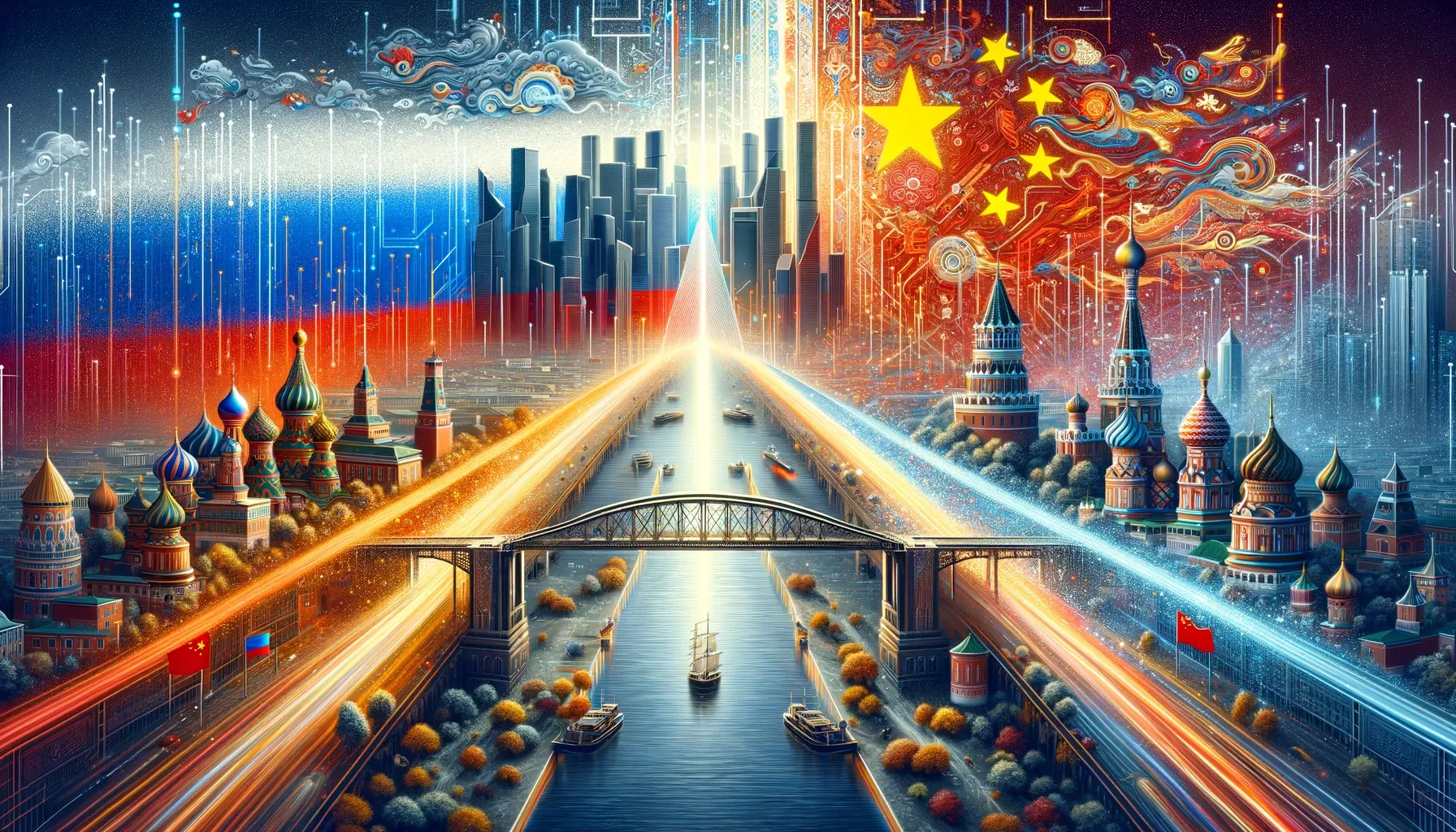Bridging East and West: The Symbolic Alliance of Russia and China
Aleksandr Dugin, a Russian political philosopher and analyst often referred to as "Putin's brain" by Western media, has recently joined Chinese social media platforms such as Sina Weibo and Bilibili to engage with Chinese netizens and scholars. Ahead of Russian President Vladimir Putin's state

Aleksandr Dugin, a Russian political philosopher and analyst often referred to as "Putin's brain" by Western media, has recently joined Chinese social media platforms such as Sina Weibo and Bilibili to engage with Chinese netizens and scholars. Ahead of Russian President Vladimir Putin's state visit to China, Global Times reporter Yang Sheng conducted an exclusive interview with Dugin in Moscow to discuss China-Russia relations and Dugin's responses to critical comments from Chinese netizens.
The following interview has been edited for brevity and clarity.
GT: How do you foresee the outcome of President Putin's state visit to China and the future of China-Russia relations?
Dugin: In diplomacy, symbolic gestures carry significant weight. This visit, being Putin's first foreign trip after his reelection, underscores the commitment to building a multipolar world. China stands as a sovereign and independent pole, distinct from the Western capitalist, liberal systems, participating yet maintaining autonomy. Russia forms the other pillar of this multipolar world.
When these two pillars meet, they signify a shared vision to continue building this multipolarity. The world is no longer unipolar, and Western hegemony is waning. Our cooperation inspires other countries and regions—India, the Islamic world, Africa, and Latin America—to join the multipolar club.
This isn't about forming an alliance against anyone. If the West accepts multipolarity, it can contribute to this new order. If it resists, we will oppose the hegemony, not the West itself. The West often changes its "rules-based order" to suit its interests, inviting China into the global market but imposing protectionist measures when China gained an edge. Together, China and Russia aim to defend multipolarity against any attempts to reassert hegemony.
GT: How has Russia managed to navigate the challenges posed by the Ukraine crisis since 2022, including the Western sanctions? Despite these pressures, the Russian economy reported a 3.6% GDP growth in 2023.
Dugin: To understand Russia's resilience, we must examine different globalization experiences. China, initially behind in development, leveraged globalization to its advantage while maintaining sovereignty and stability through the Communist Party's leadership. Russia's experience was starkly different; we lost geopolitical influence, our economic system, and even the Soviet Union in the 1990s.
When Putin came to power, he prioritized restoring Russia's sovereignty. Disconnecting from the Western economy didn't harm us but rather spurred us to rely on our own resources and discover new partners like China, India, the Islamic world, and others. This diversification has revealed many willing economic partners outside the West, turning our loss of the West into a discovery of "the rest."
GT: You have recently created accounts on Chinese social media platforms such as Sina Weibo and Bilibili. Why did you decide to engage with the Chinese public, and do you read the comments from Chinese netizens?
Dugin: I deeply respect China's rich history and culture, as evidenced by my book, "The Yellow Dragon," which celebrates Chinese civilization. Understanding and promoting China-Russia friendship requires a philosophical foundation, aligning our civilizations beyond mere tactical partnerships.
Our societies and values differ significantly, yet we share converging points. To foster a comprehensive dialogue, I opened social media accounts to engage with the Chinese public, expressing my views on Russia, global affairs, and the principles underpinning our future relations.
The response has been astonishing, sparking extensive debates. Critics often use out-of-context quotes from the 1990s, a period when Russia was under different leadership, to attack me. Back then, I feared China might lose its sovereignty to global capitalism. However, China's steadfastness and transformation changed my perspective, and now I fully support China-Russia friendship.
GT: In the 1990s, you believed globalization would compromise China's sovereignty. What changed your mind, and how has your opinion evolved over time?
Dugin: Indeed, in the 1990s, I feared globalization would erode China's traditional values. However, over the past 25 years, significant changes in China, Russia, and global geopolitics have shifted my perspective. My visits to China and interactions with Chinese intellectuals revealed a resilient and thriving civilization.
Now, I admire China's progress and commitment to its traditions, and I am actively involved in academic exchanges to enhance mutual understanding. The more I learn about China, the greater my admiration for its achievements.




